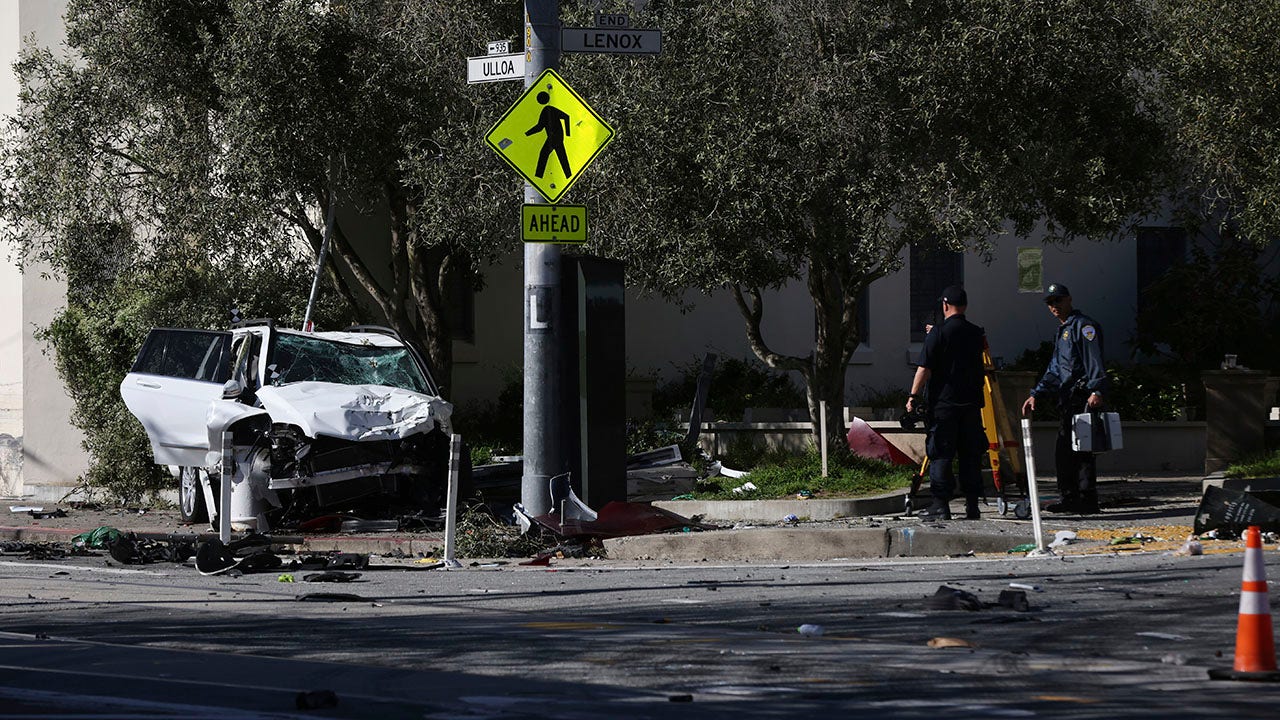For many Angelenos, the road signs that have been posted in the Silver Lake neighborhood over the last two decades forbidding U-turns from midnight to 6 a.m. were just another example of the city’s seemingly arbitrary and extremely specific traffic regulations.
But to longtime members of the area’s L.G.B.T.Q. community, they were something more: vestiges of a painful not-so-distant past when Los Angeles’s queer spaces were targeted rather than celebrated.
After two years of planning, the last of the signs on Griffith Park Boulevard were removed last week. The occasion was marked with coffee, guava and cheese pastries and performances by two local drag queens.
The “No U-turn” signs were posted in 1997 in response to residents’ complaints that the boulevard had become a hot spot for gay men looking for sex partners. There were nine of the signs on Griffith Park Boulevard, as well as “No Cruising” signs on nearby Hyperion Avenue. (Cruising in Los Angeles has long had multiple meanings.)
The signs soon prompted complaints about discriminatory and homophobic police crackdowns in the area. Some gay men accused undercover vice officers of entrapment.
Local activists persuaded city officials to take down the “No Cruising” signs in 2011, but the signs banning U-turns at specific hours remained posted until this year.
“Once you learn the history of it, and you realize that these were used to profile gay people, it’s so important you have these removed,” Maebe A. Girl, a drag queen and elected member of the Silver Lake Neighborhood Council, said at the removal ceremony.
Donovan Daughtry, a Silver Lake resident, said he felt the same way after hearing a podcast episode about the history of the neighborhood’s L.G.B.T.Q. scene, which mentioned the signs. He reached out in 2022 to his city representatives, including Nithya Raman, the City Council member whose district included some of the signs. The rest were in a neighboring district represented by Hugo Soto-Martinez.
The two council members said at the ceremony last week that they were proud to work with the city’s transportation department to get the signs taken down — during Pride month, no less.
Korey Wyatt, 60, said he remembered when the signs were posted. It stung, he said, to still see them decades later. “Taking them down is such a beautiful thing,” he said at the ceremony. “You can’t criminalize people getting together.”
Wyatt is now the board president of the AT Center, a space off Griffith Park Boulevard for L.G.B.T.Q. people in recovery from substance abuse problems. The center hosted the celebration in its backyard, decorated with rainbows.
For more:
And before you go, some good news
Stefani De Palma, a California native hoping to represent the United States at a French culinary competition next year, has incorporated the flavors of well-known foods like corn dogs in qualifying events, The Associated Press reports.
At a competition last week in New Orleans involving nine teams from nations in the Western Hemisphere, De Palma had to use regional ingredients from the host city, and wanted to reflect her home state as well. So she created what she called “a California celebration of Louisiana shellfish” — a corn dog made with alligator boudin sausage, battered in a mixture of buttermilk, ground grits and corn meal.
De Palma has been training for the competition at the Culinary Institute of America in Napa. She and her team hope to advance to the finals in Lyon, France, in January.






